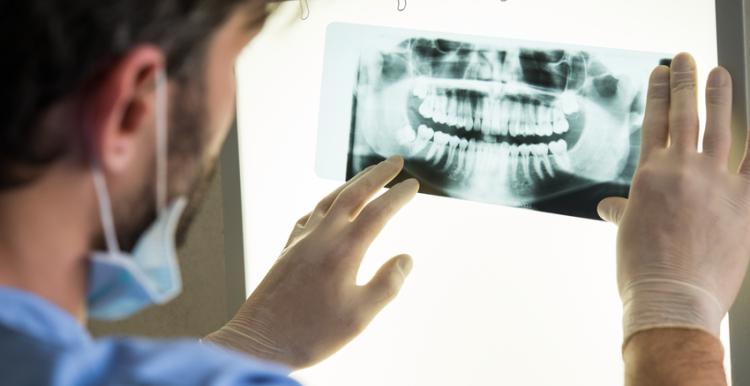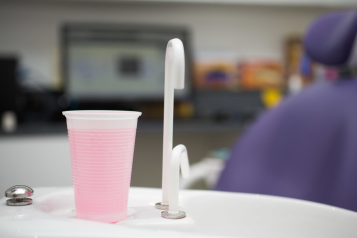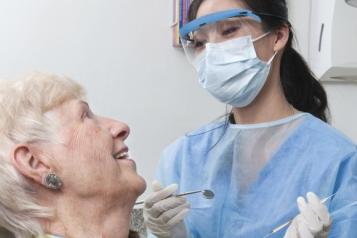10 top tips to get the most out of your dental appointment

NHS Dentistry – Know your rights!
You are entitled to have all clinically necessary treatment on the NHS. This means that the NHS will provide any treatment that you need to keep your mouth, teeth and gums healthy and free of pain.
If your dentist says you need a particular type of treatment, you should not be asked to pay for it privately. Your dentist is not allowed to refuse you any treatment available on the NHS but then offer the same treatment privately. Also, any treatment provided on the NHS has to be of the same high quality as treatments provided privately. Depending on what you need to have done, you should only ever be asked to pay one charge for each complete course of treatment, even if you need to visit your dentist more than once to finish it. You will not be charged for individual items within the course of treatment.
Take a look at our top tips to help you get the most out of your next dental appointment:
1. Prepare for your appointment
Have you been experiencing any dental pain, or other problems with your mouth or teeth? Let your dentist know.
2. Tell your dentist if you’re feeling anxious
Many people feel nervous about going to the dentist, but if you're anxious then help is available. Talk to your dentist about your fears and take a look at this guide.
3. NHS or private care?
Do you know whether you’re being seen as an NHS or private patient? Most high street dental practices provide both types of care. If you need treatment, make sure you understand how much it will cost before you commit to it. There are three standard charges for NHS treatment.
4. Are you eligible for free NHS treatment?
Some people are entitled to free or partial help to pay for NHS dental care. To find out if you’re eligible for help with your health costs, take a look to see if you meet the NHS’ criteria.
5. Ask your dentist for a treatment plan
You might be charged more for some dental treatment, such as fillings, removing teeth and more complex procedures. These usually fall into NHS charges for band 2 and 3. If your dentist recommends this type of treatment, you should be given a personal dental treatment plan. This will list all the treatments you are having on the NHS and what you should expect to pay. Your dentist should also discuss any alternative private treatment with you and give you the cost in writing before you commit to it.
NHS Dental Charges (updated 14 December 2020*)
- Band 1 course of treatment is £23.80 - this covers an examination, diagnosis (e.g X-rays), advice on how to prevent future problems, a scale and polish if needed, and application of fluoride varnish or fissure sealant. If you require urgent care, even if your urgent treatment needs more than one appointment to complete, you will only need to pay one Band 1 charge.
- Band 2 course of treatment is £65.20 - this covers everything listed in Band 1 above, plus any further treatment such as fillings, root canal work or if your dentist needs to take out one or more of your teeth (extractions).
- Band 3 course of treatment is £282.80 - this covers everything listed in Bands 1 and 2 above, plus more complex procedures such as crowns, dentures and bridges.
*The National Health Service (Dental Charges) (Amendment) Regulations 2020 (“the Amendment Regulations”) were laid before Parliament on 23rd November 2020 to increase the NHS dental patient charges in England from 14th December 2020.
6. Follow the advice your dentist gives you
During your appointment, your dentist should give you advice on how to take care of your teeth to avoid gum disease and tooth decay.
7. Not clear on the treatment plan? Ask again
Make sure you fully understand your treatment and any aftercare before you leave the room. If you don’t, then don’t be afraid to ask your dentist to go through the plan again. Find out who you can contact if you have any questions after your appointment.
8. Find out when you need to return for your next check up
Your dentist should advise you when they’ll need to see you next. You can expect to return between three months to two years depending on how healthy your teeth and gums are. However, children under 18 are recommended to see the dentist at least once a year.
9. Do you have a disability, impairment or sensory loss?
Legally, if your treatment is partially or fully funded by the NHS your dentist should make sure that you are given information that you can easily read or understand to make sure your needs are met. Find out more about the Accessible Information Standard.
10. Unhappy? Find out how to make a complaint
It's usually best to speak to the dental surgery first to try and resolve the issue. If you’re still unhappy about your care, ask for a copy of the complaints procedure from your dentist.
Need more advice?
NHS Choices has a range of information on using dental services, including:

